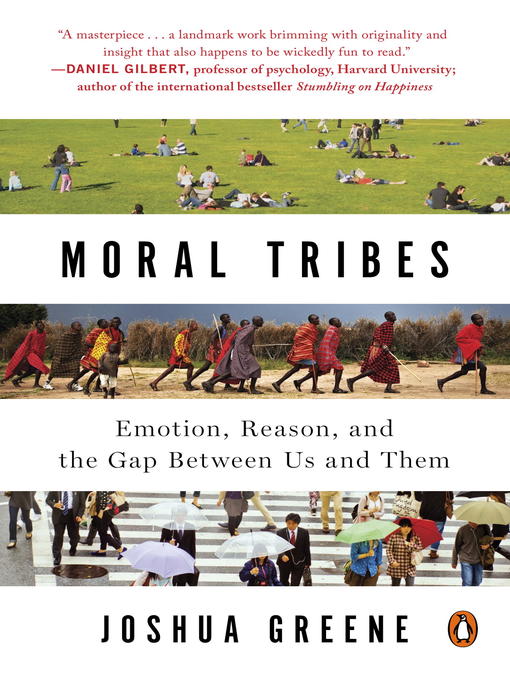
Moral Tribes
Emotion, Reason, and the Gap Between Us and Them
کتاب های مرتبط
- اطلاعات
- نقد و بررسی
- دیدگاه کاربران
نقد و بررسی

August 26, 2013
Greene, director of Harvard University’s Moral Cognition Lab, discusses modern debates over individualist versus communitarian thinking and presents his readers with a roadmap to what he considers a “more reason-based” and utilitarian morality. With a humorous, relaxed tone, Greene stacks piles of evidence from well-researched studies onto his theory of modern-day morality. Having spent most of his academic career on the study of morality, Greene foresees the questions his readers have and systematically addresses every doubt and concern. As he mixes 20th-century philosophical moral treatises with neuroscience and psychological studies—many of which were undertaken by his colleagues in the field of moral psychology—Greene’s role as educator shines through; his writing is clear and his examples simple yet intriguing. He also makes earnest recommendations for self-critique and examination. However, in the act of critiquing problematic visions of human morality to his readers, he pushes them toward adopting his own utilitarian brand of thinking. Greene’s work will be useful to anyone looking for contemporary support for utilitarian morality, but has the potential to alienate those who aren’t already sympathetic to his position.

September 15, 2013
Greene (Moral Cognition Lab/Harvard Univ.) combines insights from psychology and philosophy to illuminate "the structure of modern moral problems." The author suggests that the human brain utilizes two separate moral systems. The first relates to behavior within the tribe--our family and the social groups with whom we identify. Modern evolutionary psychologists convincingly explain that both cooperation and competition have had survival value for humans and also animals. The author describes this as "a problem that our moral brains were designed to solve." We are emotionally programmed to make rapid, instinctive judgments between right and wrong, which are shaped by group norms but translate into gut-reaction intuition. Greene distinguishes this as a kind of moral, common-sense reaction appropriate to maintaining harmony with a group while competing with rival groups for resources. The author's concern is with the kind of "metamorality" that demands a reasoned response in order to adjudicate between different tribes. This second kind of morality requires reasoned rather than emotional judgment--e.g., the attempt to find common ground between rival philosophies, regarding issues such as abortion, religion and competing national interests. Greene's solution is an elaboration of the utilitarian conception of happiness as the greatest good to the greatest number. To value one's own happiness is "to value everything that improves the quality of experience, for oneself and for others." To illustrate the two distinct moralities, he discusses a number of variants of the Trolley Problem: Is it appropriate to throw a switch on a train about to collide with five people if doing so will injure one person? Most people will answer "yes." However, they will say no to physically throwing a bystander in front of it. In principle, utilitarianism would seem to work, but not necessarily in practice. A provocative, if Utopian, call for a new "common currency of observable evidence...not to gain advantage over others, but simply because it's good."
COPYRIGHT(2013) Kirkus Reviews, ALL RIGHTS RESERVED.

























دیدگاه کاربران